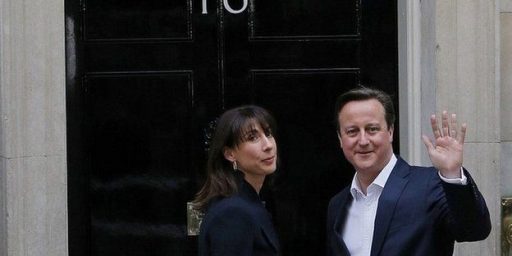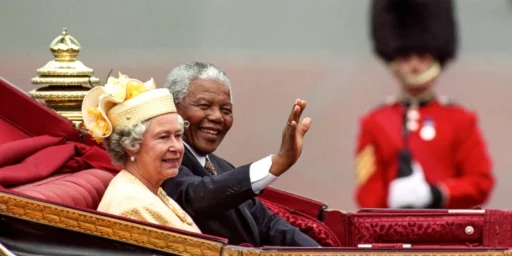Brits End Gender Discrimination in Royal Succession
Commonwealth leaders agreed to drop rules that give sons precedence as heir to the throne and bar anyone in line for the crown from marrying a Roman Catholic.
When I first saw the CSM headline “Girls rule: 300 years of British royal gender discrimination ends,” my initial reaction was to snark, “The Queen and Mrs. Thatcher will be relieved.” But the policy change is real and laudable:
Centuries of British royal discrimination came to an end Friday after Commonwealth leaders agreed to drop rules that give sons precedence as heir to the throne and bar anyone in line for the crown from marrying a Roman Catholic.
The 16 countries that have Queen Elizabeth as their monarch agreed to the changes put forward by British Prime Minister David Cameron, who had called the rules of succession outdated.
“The idea that a younger son should become monarch instead of an elder daughter simply because he is a man, or that a future monarch can marry someone of any faith except a Catholic, this way of thinking is at odds with the modern countries that we’ve all become,” Cameron told reporters.
The snarky will be inclined to observe that the same could be said of monarchy. But the UK and Commonwealth version has been almost entirely ceremonial for a very long time now and has its benefits.






1-) It´s not entirely ceremonial because the Queen is still the Head of State.
2-) Symbolically speaking that´s horrible because in a monarchy the king is supposed to be placed in a superior position than the citizens. Some years ago the owners of a satirical magazine in Spain were arrested because they portrayed the prince in the cover.
@André Kenji de Sousa: I can preach it either way but there is some distinct advantage in having the Head of State and Head of Government be two different people. Americans expect a certain amount of reverence for the office of the president. It’s undue to a mere politician.
My preference would be for something more along the lines of the German model, where the Head of State is a kindly old statesman who’s elected (indirectly in that case but it could be done directly) to carry out ceremonial functions and the Head of Government then has little in the way of a ceremonial/regal role.
Even under the current UK system, the Queen still has some power, which most often comes into play when there’s a minority government. If the government loses a confidence vote and there’s a possibility that some other party could potentially form a new government, then the Queen has the choice to either call an election or to ask the second-largest party to form a government.
This hasn’t happened in the UK for a very long time, but the Governor General of Canada has had to face decisions like this recently.
Pfft, the Queen has no power, if she dared use what legally remains under her control the Commons would be in uproar and the Monarchy properly finished off. This whole thing generally though has highlighted the muge waste of resources the Monarchy are to the UK. How many hours and resources have been committed into redrafting the relevant legislation – in short, a lot. This has been an expensive legal alteration, for someone to sit on a throne who may never even come into existence. It is a farce that the UK is paying for all of this nonsense at a time when we cant afford our healthcare system, our Universities, our schools, our libraries, and so on and so on.
@EyeOnWales: Sorry – ‘huge waste’ that should have read as – post midnight posting, not a good idea!
@James Joyner:
I’m largely a fan of this separation, though I wonder if the political environment in the US would cause the office to become partisan, to the extent that it can.